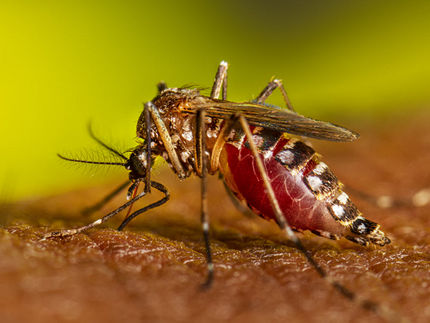AVI BioPharma's NeuGene Antisense Shows Inhibition of Dengue Virus
PORTLAND, Ore. - AVI BioPharma, Inc., presented results of a study showing inhibition of dengue virus with its NeuGene® antisense compounds at the Seventh International Symposium on Positive-Strand RNA viruses held in San Francisco May 27- June 1. Dengue virus is a single-stranded RNA virus that is endemic in most tropical countries of the South Pacific, Asia, the Caribbean, the Americas and Africa.
"This presentation describes how AVI's NeuGene antisense compounds specifically block dengue viral replication in cell culture," said Patrick L. Iversen, Ph.D., senior vice president of research and development at AVI. "These results suggest that our NeuGene antisense compound has therapeutic potential for the control of dengue virus infections."
The study, conducted in cooperation with the Centers for Disease Control and Prevention (CDC), evaluated the ability of AVI's NeuGene compounds to inhibit replication of dengue virus strains 1 through 4. Dengue virus is a member of the flavivirus (Flaviviridae) family, which includes hepatitis C virus (HCV), yellow fever virus and West Nile virus, as well as a number of viruses associated with bioterrorism. The presentation was made by David Stein, a principal scientist at AVI BioPharma.
"Outbreaks of dengue virus represent a major global public health problem, especially in certain subtropical and tropical locations," said Peter O'Hanley, Ph.D., M.D., M.P.H., senior vice president of clinical development and regulatory affairs at AVI. "There is an urgent need to test worthwhile novel preventative and therapeutic agents to control dengue since there are no approved drugs or vaccines for this infection or disease. These new scientific findings about dengue-targeted NeuGene compounds foster interest to test them in a number of clinical settings, including in military personnel deployed in hyperendemic dengue locales and in indigenous populations residing in hyperendemic dengue locales."
The presentation, titled "Inhibition of Dengue Virus Serotypes 1-4 in Cell Culture with Morpholino Oligomers," describes research evaluating the inhibition of multiple dengue strains using several NeuGene compounds in cell culture. This study tested five NeuGene strategies to evaluate which compounds are both specific and efficacious against multiple dengue viral isolates. The best NeuGene antisense compounds were highly effective against viral infection in cultured cells and were found to inhibit viral titer by up to one-millionfold. The dengue-targeted NeuGene compounds did not inhibit West Nile viral infection of cells in culture, serving as a control for the specificity of the NeuGene compounds.
According to the CDC, dengue fever and dengue hemorrhagic fever (DHF) are viral diseases transmitted by mosquitoes. Dengue is the most rapidly expanding disease in most tropical and subtropical areas of the world. An estimated 50 million to 100 million cases of dengue fever occur each year, 200,000 to 500,000 of which are DHF. The disease is caused by one of four dengue virus strains. Epidemics caused by all four virus strains have become progressively more frequent and larger in the past 20 years. After an incubation period of from three to 14 days, dengue fever is characterized by a sudden onset of high fever, severe frontal headache, and joint and muscle pain. Many patients also experience nausea, vomiting and a rash. The strain of the infecting virus, as well as the age, immune status and genetic predisposition of the patient can all affect whether a person develops general dengue fever or the far more severe and life-threatening DHF.
Most read news
Other news from the department science

Get the life science industry in your inbox
By submitting this form you agree that LUMITOS AG will send you the newsletter(s) selected above by email. Your data will not be passed on to third parties. Your data will be stored and processed in accordance with our data protection regulations. LUMITOS may contact you by email for the purpose of advertising or market and opinion surveys. You can revoke your consent at any time without giving reasons to LUMITOS AG, Ernst-Augustin-Str. 2, 12489 Berlin, Germany or by e-mail at revoke@lumitos.com with effect for the future. In addition, each email contains a link to unsubscribe from the corresponding newsletter.
More news from our other portals
Last viewed contents
List_of_arctiid_genera:_F
Biogen Idec to acquire Fumapharm AG
Knee_cartilage_replacement_therapy

mobiolab GmbH i. Gr. - Berlin, Germany






















































